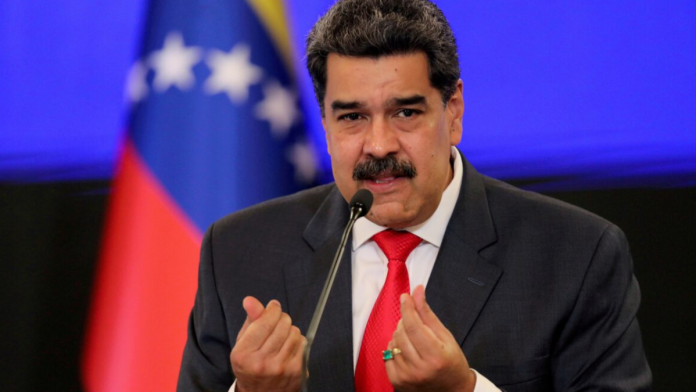The U.S. government has taken a major step against international drug trafficking by labeling a Venezuela-based criminal network, Cártel de los Soles, as a Specially Designated Global Terrorist group. This group is believed to have deep ties to high-ranking Venezuelan officials and has been linked to the infamous Mexican drug syndicate, the Sinaloa Cartel.
Authorities say the Venezuelan network has provided money, logistics, and technology to help criminal groups move narcotics across borders. The U.S. Treasury’s action, announced in late July, aims to cut off any support systems that help the two organizations work together.
U.S. Targets Venezuelan Network for Drug Trafficking Ties
The Cártel de los Soles, though called a cartel, doesn’t resemble typical drug gangs. It operates within Venezuela’s military and government, blending organized crime with official power. According to U.S. officials, this shadowy group plays a major role in shipping cocaine to the United States.
The U.S. Department of the Treasury’s Office of Foreign Assets Control (OFAC) stated that the network had “materially assisted, sponsored, or provided support” to the Sinaloa Cartel. This includes financial aid, transport systems, and technological tools to streamline the drug trade.
Investigators say the Sinaloa Cartel receives large quantities of cocaine from South America. Some of this cocaine is moved through Venezuela with help from Cártel de los Soles operatives. Once in Mexico, the drugs are trafficked into the United States and other parts of the world.
💰 Cartel crackdown collides with Wall Street—Mexican banks purge clients to dodge U.S. sanctions
Hidden in Uniform: A Cartel Inside the Military
The group’s name — Cártel de los Soles, or “Cartel of the Suns” — refers to the sun-shaped badges worn by senior military officers. But this is no ordinary group of officers. It is a criminal network that, according to U.S. officials, is led or backed by top Venezuelan leaders.
President Nicolás Maduro has been identified as a central figure, along with Interior Minister Diosdado Cabello Rondón, former intelligence chief Hugo Armando Carvajal Barrios, and retired general Clíver Antonio Alcalá Cordones. These individuals are accused of directly or indirectly helping with drug shipments and offering protection to traffickers.
Evidence of this collaboration first emerged years ago. In 2015, two high-ranking officers in the Bolivarian National Guard — Vassyly Kotosky Villarroel and Robert Alexander Pinto Gil — were arrested for helping criminal groups move cocaine across borders. They allegedly provided safe passage and logistical support to both Colombian and Mexican cartels, including the Sinaloa group.
In June, Carvajal Barrios pleaded guilty in a U.S. court to charges related to drug trafficking and narco-terrorism. His admission added weight to long-standing suspicions about Venezuela’s role in facilitating the global drug trade.
The U.S. also believes that the Cártel de los Soles collaborates with Tren de Aragua, another violent criminal gang with growing influence in South America.
💥$600M converter cartel smashed — Khanna’s lavish empire ends in prison time
A Global Network: The Sinaloa Cartel’s South American Ties
The Sinaloa Cartel is one of the world’s largest drug trafficking organizations. According to the 2024 U.S. Drug Enforcement Administration (DEA) report, the cartel operates in at least 47 countries and maintains a permanent presence throughout Central and South America.
South America is critical to the cartel’s success. It’s where massive amounts of cocaine are produced. From there, the Sinaloa Cartel manages shipments to Mexico, and later to the U.S., Europe, and Oceania. U.S. officials say the Venezuelan corridor — supported by the Cártel de los Soles — plays a key role in moving these drugs.
The DEA also reported that the cartel is involved in the production of synthetic drugs like fentanyl, which is responsible for a growing number of overdoses in the U.S. The Sinaloa Cartel relies on chemical imports and logistical help from its partners in South America to keep production running.
By working closely with the Cártel de los Soles, the cartel benefits from government protection, military coordination, and corruption networks that make trafficking easier and harder to trace. The Treasury’s new designation is designed to freeze the Venezuelan group’s assets and block any U.S. persons or companies from dealing with them.


